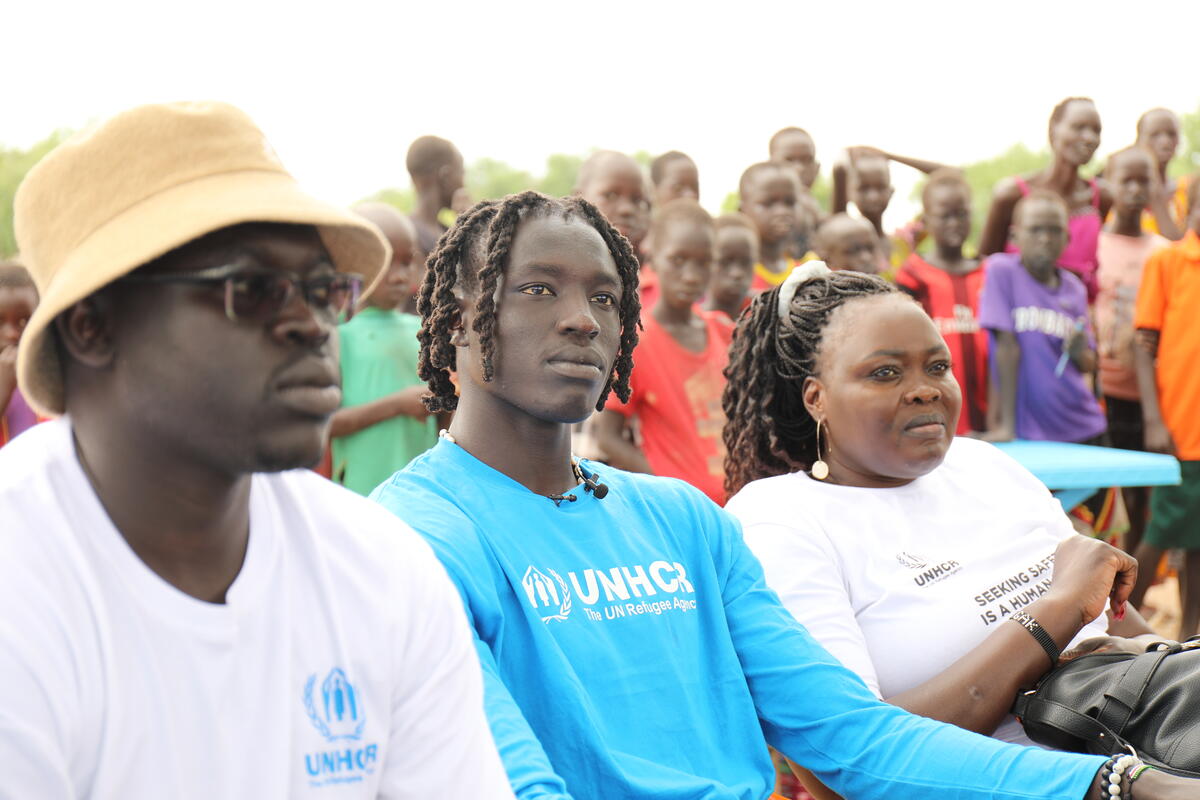UNHCR continues operations to help displaced people in north-west Pakistan
UNHCR continues operations to help displaced people in north-west Pakistan
UNHCR staff in north-west Pakistan report that displaced people are visiting their areas of origin on a 'go and see' basis, to harvest crops, check on livestock and generally assess the possibility of returning home. There are local media reports of widespread returns of IDPs to their areas of origin but UNHCR staff say there is no discernible large scale movement out of the camps. UNHCR and other agencies are working with the government to develop a return framework to ensure it is voluntary, safe, dignified and sustainable.
As part of this process, UNHCR this week conducted a rapid survey among 4,200 displaced families in Yar Hussain camp in Swabi District. The families are primarily from Buner district. While the data is still being analysed, initial findings suggest most people want to return home but are concerned about security conditions. They cited 'improvements in security conditions' and 'restored peace' as preconditions to their return. Other reasons for people not wanting to return at this stage were destruction of houses and infrastructure such as electricity supply, and concerns about lack of education and food.
The survey also found that most families had not visited their place of origin since they were displaced. Those that did, said it was to harvest crops, secure cattle or check on homes. Some people had gone back to help bring additional family members, especially the elderly, who were initially left behind because they couldn't move quickly. But almost all people who had reported going back said they did so only once.
Meanwhile, an average of 1,800 people (or 300 families) per day continue to arrive at Jalozai camp, Nowshera district, which is being expanded as other camps in the North West Frontier Province are full. The new arrivals at Jalozai are a mix of people previously staying with host families and those referred on from camps which are full.
In all the organized camps, we are continuing to improve conditions, building shade structures over tents to relieve the heat and privacy walls around groups of tents. We are also improving infrastructure like lighting and fencing. Preparations are underway for the monsoon season expected in mid-July. We are reinforcing drainage systems, especially in flat low-lying camps like Larama in Peshawar and Sheikh Shahzad in Mardan. Many families have started to protect their family tent by building up low protective brick walls or draining canals.
Outside of camps, this week we have been distributing relief items through our partner Sarhad Rural Support Programme (SRSP) to some 24,700 people staying in host families and schools in Charsadda, Nowshera and Mardan districts. Distribution of relief packages including mats, plastic sheets, jerry cans and kitchen sets is done through the humanitarian hubs run in conjunction with the World Food Programme.









